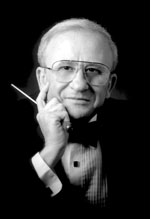By David Amos

SAN DIEGO –Here are a few thoughts, quotes, opinions and stories, as they relate to music, tradition, and speech:
–You remember that about ten years ago we experienced a “Mozart Effect” craze, where some research pointed to better test and I.Q. scores for children and students after listening to a healthy dose of Mozart’s music?
That eventually proved to be in error. However, test after test, and after many independent experiments, the results are unequivocal: Children in their formative years who are exposed to classical music in the home, and more so if they are given music lessons in voice or any instrument, do significantly better in tests, retention, and comprehension of all other subjects, (math, science, history, literature, etc.) than those without the discipline of music.
But, aside from the implied benefits in other fields, the possession of an artistic form of expression and the appreciation for music and all the fine arts is the greatest gift which any parent, grandparent, or teacher can give to a child.
–Here are a couple of facts which you should know: A) Classical music listeners have the highest percentage of disposable income with the lowest unemployment rate in any demographic group, and, B) The average income of someone who listens to classical music is $120,000 per year.
–I really like this quote from Dr. Larry Smarr, U.C. San Diego physicist and futurist: “Everyone sees the world, but the innovative thinkers conceptualize”.
–Once a year, Michigan’s Lake Superior State Universityannounces its “List of Words Banished from the Queen’s English for Misuse, Overuse, and General Uselessness.” One of those words is amazing. I would like to humbly add another word to the university’s worthy list; that word is awesome.
I am sure that if we ban these two grossly overused words in any form of verbal discourse, we could cut down by 60 percent the length of all these repetitive and predictable Bar-Bat Mitzvah speeches and dreadful wedding reception toasts.
–Let’s not mispronounce over and over again the name of Israel’s greatest orchestra: It is the Israel Philharmonic, not the Israeli Philharmonic.
–And you thought that the music of Stravinsky was too modern? In 2002 the New York Times included an article by Matthew Mirapaul about a Telesymphony, “a musical work for 200 cell phones” by MIT Media Lab graduate Golan Levin. At the composition’s premiere inAustria, Levin “will dial the numbers from an onstage computer to produce carefully orchestrated patterns of sound”
The composer and software engineer explained that “this is part of the motivation to make a sacred space for the enjoyment of ringing cell phones.” As each phone rings, an overhead spotlight will shine on the head of the call’s recipient; Levin expects “a panoply of sounds both melodic and noisy” and will amplify the vibrations of several units.
People of Austria, rejoice!
This reminds me of that most special concert held at La Jolla’s Sherwood Auditorium in the 1960’s, when composer John Cage treated the audience to an evening that is hard to forget.
–Worth knowing and remembering: The Christian liturgy has a vast number of musical settings for the concert hall, written by practically all of the great composers we know and love. All we have to do is mention Bach’s Mass in B Minor, his Passions, Handel’s Messiah, works by Mozart, Haydn, Beethoven, many other requiems, masses, oratorios, glorias, and cantatas. The list is endless.
But, there is only one work from the Jewish scriptures for orchestra, chorus and soloists which has earned the title of a “lasting masterpiece”. This work is Ernest Bloch’s Sacred Service, also titled by its Hebrew name, Avodat Hakodesh. It is a musical setting of the Shabat Morning Service, in five sections with a concluding benediction. It is also a musical work of depth and inspiration.
Bloch is considered the greatest composer of the Jewish movement in classical music of the Twentieth Century. He was born in Geneva in 1880, but it was not until 1911 that he discovered his Jewishness, and a whole string of Judaically oriented masterpieces were created. His “Jewish Cycle” included the Israel Symphony, Baal Shem Suite, Schelomo, Three Psalms, Three Jewish Poems, and other great works.
Bloch immigrated to the United Statesin 1916, and soon earned the reputation as an eminent teacher; he was the mentor of many musicians. They developed into composers who later became a force of their own in American music.
Now is the time for other prominent living composers to create new, epic works on Jewish subjects. The availability of material is endless, and worldwide, audiences are ready to accept compositions of this neglected genre.
*
Amos is conductor of the Tifereth Israel Community Orchestra (TICO) and has guest conducted professional orchestras around the world. He may be contacted at david.amos@sdjewishworld.com